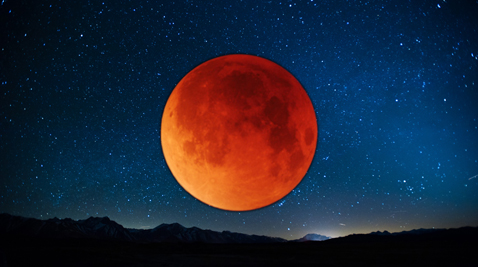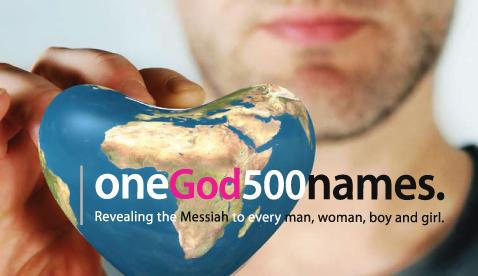
Appointed Times
The “Feasts of the LORD” are “Appointed Times” that have been instituted by Adonai (G-d) as times of great significance to mankind and the history/future of the world. See the poster of the 2014 – 2015 Blood Moon lunar tetrad highlighting important dates and their meanings that you won’t want to miss.
The Feasts of the LORD
For many people, the first question is always: “Why should we care about some ancient feast?” and the second question is often: “Whose feasts are they anyway?” The feasts as recorded in Leviticus 23:1-44 are not just about something that happened to Israel thousands of years ago. They are for us today, with great prophetic significance for this present time; they point to Messiah Jesus—both to His first coming, but also to His near second coming. Two very important things to note are these:
- When God said they were His feasts, the word He used for feast was mo’ed—meaning “appointed times.”
- When God instructed to proclaim these feasts (appointments) to the “sacred assembly” in the Leviticus passage, that phrase literally means “rehearsal.”
So this brings us to a third question that we should ask, and that is: “So what is the Lord saying to us about His feasts?” This is what the Lord is saying to us today about His feasts:
He is saying that they are rehearsals for appointed times, that they have an important message not just about the past but also about what He has planned for the future.”
A clear example of this can be found in the Feast of Passover. The original lamb sacrificed at Passover was literally a “rehearsal” to prepare Israel for their true sacrificial “Lamb,” Who was Christ. Often what has happened in the past points to shadows of things to come according to Colossians 2:16-17 which says:
Therefore do not let anyone judge you… in regard to a religious festival, a New Moon celebration or a Sabbath day. These are a shadow of the things to come; the reality, however is found in Christ.”
As we begin to examine and understand the prophetic nature of the feasts, something wonderful happens. Confusion is replaced with clarity, and fear melts away in the presence of total joy. Events such as the Rapture, for example, become an exciting, joyous time, not a strange and scary event to anticipate with dread—the Rapture, second coming, and Millennial reign of Christ is seen in an entirely new light.
Seven Feasts of the Lord
Spring Feasts:
All point to events concerning the first coming of Jesus
- Passover – Jesus shed His own blood as the Lamb of God on this day. This feast is also known as “Pesach” in Hebrew
- Unleavened Bread – He was buried in a grave of death
- Firstfruits – death could not hold Him… the grave could not keep him from rising again!
- Pentecost – He sends His Holy Spirit into all believers as promised
Fall Feasts:
All point to events surrounding the second coming of Jesus
- Trumpets – Rash Hashana, meaning “head [of] the year;” the day Adam was born; and the suspected date that Christ was born in the year 3 BC
- Day of Atonement – “Yom Kippur” in Hebrew, and is the holiest day of the year in Judaism
- Tabernacles – also known as “Booths” or “Shelters” called “Feast of Sukk’ot” in Hebrew
It’s important to note that Jesus fulfilled the first four feasts during His first coming on their respective days. He didn’t fulfill them around the days, but He fulfilled them on their actual historic days. If He fulfilled the first four on their actual days, then I would suggest it is reasonable to presume that He will fulfill the last three on their actual days. Let’s examine one of the Fall feasts yet to be fulfilled.
The Feast of Trumpets
This feast is a prophetic picture of the Rapture (1 Thess. 4:13-18) of the Bride of Christ (all believers in Jesus—known as the church). Historically, the people of God were instructed to “Blow Trumpets” (Lev. 23:23-25). The Hebrew word for “trumpet” is the word “shofar.” It takes place in the seventh month on the Jewish calendar, known as Tishri. It is clear in Scripture that the number 7 has a recurring role in God’s end-time plans. In Scripture, the number 7 represents completion and rest. It’s no coincidence then that God should choose to place these feasts in the seventh month to represent the consummation of His plan in the end-time events. Although it is called the Feast of Trumpets in Scripture, most people today would know it by its modern name, Rosh Hashanah. This phrase literally means “Head of the Year.” Trumpets begin the Jewish civil year, celebrated as the Jewish New Year. Some Rabbi teach that the world was created on Tishri 1, and some even teach that this was the very day on which Adam was created.
The Feast of Trumpets is the only feast for which no one really knows the day or hour when it will begin. In Bible times, the Jews always knew the season of Trumpets, but they couldn’t pinpoint the actual day because their calendar was determined by the sighting of the new moon to determine their feast dates. It is possible this was the event that Jesus referred to in his comments about the end times in Matthew 24:36: “No one knows about that day or hour, not even the angels in heaven, nor the Son, but only the Father.”
For the Lord himself will come down from heaven, with a loud command, with the voice of the archangel and with the trumpet call of God, and the dead in Christ will rise first. After that, we who are still alive and are left will be caught up together with them in the clouds to meet the Lord in the air. And so we will be with the Lord forever. Therefore encourage each other with these words.”
1 Thessalonians 4:16-18
The Feast of Trumpets is a feast of warning with over 90 blasts of several trumpets (the Teki’at Shofar, ram horns). According to God’s Biblical, Hebrew (Jewish) calendar, the Feast of Trumpets begins at sundown on the seventh month, on the first day in the month of Tishri (Leviticus 23:24)—which is 14, 15 September 2015 on the Gregorian calendar used today. All of the trumpets and their blasts are thundering sounds that call people to repentance—turning away from their self-centered lives and to turn their hearts toward God. It is a time to cry out to the Lord for His forgiveness of your sins; a time of self-examination, and to re-discover and accept the salvation of the One True God and Saviour, Messiah Jesus. The Feast of Trumpets calls each one of us to ready ourselves for our soon coming bridegroom, the soon coming King through sober, sincere, earnest prayer, introspection, and repentance. The Feast of Trumpets serves to remind us of the importance of hearing the voice of God. May we all be ready as we understand His feasts and know the time and season of His return—Lord, give us ears to hear you clearly.
The seven feasts of the LORD
Learn what the seven feasts of the LORD are, and why they are important to believers today.

